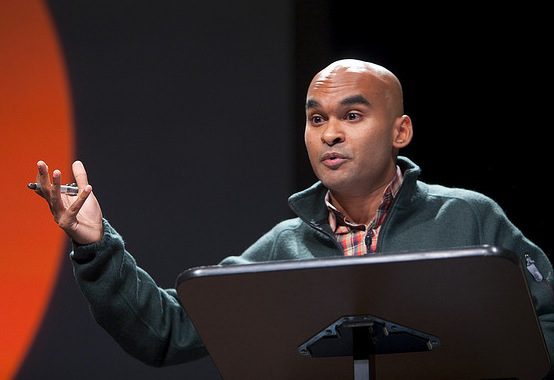Why No One Should Still Be a Neocon (III)

Reihan Salam clarifies what he means by “neocon”:
So who am I calling a neocon? I’m calling a lot of people neocons, including people who’d never dream of applying the label to themselves.
That clears up some things, but unfortunately it also creates far more confusion than necessary. If other people don’t embrace a particular foreign policy label, it is normally a good rule not to apply it to them. More to the point, if neoconservative means something specific it is decidedly not helpful to the debate to apply it to a much wider range of people that could easily be better described in another way. Many people might agree with the views that Salam endorsed in his original article, but they correctly don’t accept that they are neoconservatives because of this. If the purpose is just to generate controversy, I suppose it can be useful to use the neocon label so inaccurately. However, if the goal was “to identify what I take to be a serious, if contentious, view” that “now is not the right time for large-scale strategic retrenchment,” there is nothing gained by identifying that view with a toxic label.
Salam’s original argument was notable for admitting that the Iraq war was a disaster and a “moral calamity.” That by itself should tell us that he isn’t talking about neoconservative foreign policy as it has actually been conceived and practiced over the last two decades. If there is one thing that separates neoconservatives from most Americans, it is their convictions that the Iraq war was worth fighting, that the “surge” somehow “won” the war, and that the war was only lost because of an unduly hasty withdrawal. There are not many pro-Iraq war dead-enders left, but neoconservatives are significantly overrepresented among them. To still be a neocon in 2014 usually means that one continues to whitewash and justify a war that most of the country wrote off as a terrible idea and a failure (or something much worse) long ago. The fact that Salam isn’t willing to do that proves that he isn’t really a neocon by any reasonable definition of the word, and probably hasn’t been for many years.
He identifies the “belief that U.S. military primacy and U.S. global leadership are valuable and worth sustaining” with neoconservatism, but neoconservatives are hardly the only ones that believe this, and the two are far from being identical. Most internationalists across the spectrum unfortunately “define our interests broadly rather than narrowly,” but what distinguishes neoconservatives from the rest is that they are likely to perceive U.S. interests where almost no one else does. Neoconservatives are certainly some of the most vociferous and aggressive adherents of this belief in the value of primacy and “leadership,” but we have ample proof from the last decade that the neoconservatives’ preferred policies are especially undesirable if one wishes to sustain U.S. primacy and “leadership.”
The neoconservative approach to global “leadership” is one that has actively undermined U.S. power and reputation around the world, and will do so again if given the chance. Neoconservatives are very keen to exercise power and to expend resources, but they are notoriously bad at conserving and husbanding both. They’re very good at exploiting and using allies, but not terribly good at cultivating the ones we have or at making new ones. They are hegemonists that have unwittingly helped to hasten the deterioration of America’s position in the world. Salam could very easily rewrite his original article as an explanation of why he isn’t and couldn’t ever be a neocon, and he wouldn’t have to change very much.